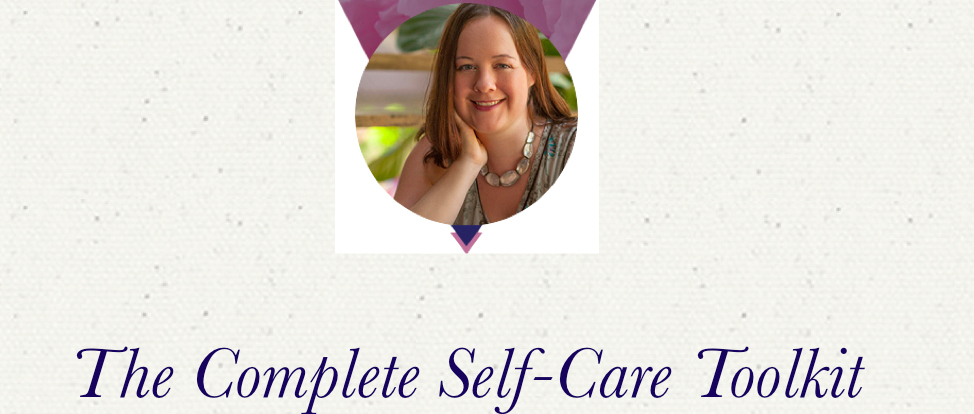
For the last two years I’ve been a digital nomad, a British ex-pat living and working abroad in SE Asia. In the past, I also lived and worked for a couple of years in Ireland. This immersion in other cultures opened me up to a different world of experiences, allowing me to see another side of the countries I am visiting that I would never get to see if I was ‘just’ on holiday.
These experiences have given me a fascination with the issues of globalisation, and the increase in global mobility, where nationals leave their own country – most often chasing work (particularly those who go from poorer to richer countries), or sometimes chasing a better or different lifestyle (more often those who go from richer to poorer countries). Some just move for adventure or interest, and a few for love. (Read an interesting article about the ex-pat phenomenon at Expatriate Wiki).
My own experiences have meant that I know many others who (along with an estimated 200 million others) have lived and worked in a country that wasn’t familiar to them, and I asked some of them to share their experiences with me.
This post brings together their view of the challenges and benefits of making such a move, and a follow-up post [LINK] shares their advice on how to get the best from such a move if you are considering it yourself – ensure you’re not one of the one in three who return home early.
Our fantastic – and intrepid – contributors:
- Rachel – From the UK to Thailand (2 years and counting).
- Jennie – From the UK to France. She and her French husband lived in the UK together for six years before their move to France, where they stayed for 14 months.
- Ray – From Ireland to Australia (5 years) and now in the UK (5 years and counting).
- Andy – From UK to Thailand (1 year), Australia (3.5 years) and Malaysia (3 years and counting). Married to an Australian national.
- Leah – From Australia to the UK (1 year).
- Ben – From the UK to Australia (4 years and counting). Partner is an Australian national.
- Christine – From the UK to Kuwait (37 years and counting!).
- Zoe – from the UK to Japan (just under 3 years).
- Akash – from the UK to the Czech republic and France (2 years).
Biggest challenges…
For Jennie, who moved into another European country at a time of economic downturn, one of her biggest challenges was finding work. She was keen to integrate into French life, and tried a number of jobs. With a successful 13 year career in marketing she wanted something office-based, but found she had to be more flexible. “My husband found me a temporary job in a factory for the company he worked for. It was a horrible job, standing up for 7.5 hours bending over machinery and putting together tiny components to make up other components for cars. The hours were 04.30-12.30 or 12.30-20.30 on a shift basis. I stuck that for a month, but hated it so left. I applied for jobs over a 4 month period with no luck. The French economy is still hugely in economic crisis so there are large numbers of French unemployed or on short term contracts which often don’t get renewed.” Eventually, Jennie and her husband decided to return to the UK, where they could both get jobs that were a good fit to their experience.
For Andy, the differences in the workplace in Malaysia were more cultural. “The biggest difference was how teams operate and the role of authority. Being ‘the boss’ is a much bigger deal here than I was used to. I remember doing a retrospective with the team when I first arrived and trying to get anyone to provide any opinion (good or bad) on how things were going was very painful. People just weren’t comfortable talking in my presence.” His time in Thailand was different again: “there’s definitely more of a reluctance there to question or let it be known that you don’t understand. People will very often smile and nod at you but not have the faintest idea what you just asked them to do. But they’re reluctant to ask for clarification. So it’s important for the information-giver to be absolutely positive that the person they’re speaking to has understood.”
For Zoe, in Japan, the differences were also cultural. “The biggest challenge was adapting to and following very strict rules and regulations, and always following protocol even if there was clearly a more logical/time-saving/common-sensical way of doing things.”
For Leah, working for the same company as in the UK, but in a different country, the biggest challenge was “how similar the work, clients, and role actually was. It helped that I was still working for the same company but I kept expecting things to be more different and was almost disappointed when it wasn’t.”
Geography was mentioned by several as a challenge, including Leah: “not knowing the geography, so when clients would say where they were located I didn’t know how far away that was, how to get there, etc.” and Ray “Scale /size of country/city and how it relates to culture/personality.”
Ben, who works with the resource/engineering/construction industries, found “the Australian workplace is a bit more competitive, with a bit more of a culture of self-promotion and generally a bit more male-influenced than the UK workplace.”
Not knowing the language can be a huge challenge. From Rachel: “Not being able to explain yourself or understand someone else can be very frustrating,” and from Jennie “Because I wasn’t completely fluent in French I was bottom of the CV pile.” But making the effort to learn it can be very rewarding. Akash says: “The language was quite difficult at first and a lot of ex-pats simply don’t bother learning and live in an Anglophone bubble, but I was keen not to do that so made an effort to learn some Czech, and that helped me to feel more integrated.”
Jennie found the French and UK job markets very different: “In the UK employers look at transferable skills so you can change careers and use skills to find jobs in different industries. In France that is not the case. The French tend to follow quite a strict career path based on the qualifications they choose. You even need a specific qualification to work in a shop!”
I didn’t expect…
“That it would be so difficult to find a job. I didn’t think the cultural differences between France and the UK were that significant but in reality I found life there at times very challenging and lonely. I don’t regret having tried life there as my French is now much more fluent and I understand my husband’s culture far more. If I could have found a job more suited to my qualifications and experience I would have been more likely to stay for longer.” Jennie
“The social ‘scene’ – since day one I’ve been encouraged to join other members of staff (and students) for things like lunch, coffee, shopping trips, etc. Even packing up to go home, and walking from the office to my bike, is a social opportunity, with most staff opting to walk together rather than alone – it’s a breath of fresh air and always feels genuine rather than forced.” Rachel
“To enjoy it so much, I made a lot of great friends and I went from working from home to working in a large, three-story building. It was very novel to be able to go up and meet people face-to-face, rather than only emailing or calling. [When I returned home] it took a while to adjust back to working from home rather than in an office with colleagues all around you.” Leah
“Starting work at 7.15am, and hearing the National Anthem played in the playground before school every day. Also censorship – Israel was blacked out in school Atlases, and there were Ministry of Education rules about issues which were not allowed to be discussed. “ Christine
“I could never have anticipated the kindness, generosity and hospitality of the Japanese people. On a slightly less positive note I didn’t expect the monumental imbalance between work life and home life, or the live-to-work attitude of the Japanese.” Zoe
“Going into that year in Thailand I didn’t expect the level of “us and them” that there was. There was a definite divide between the ex-pats working there and the locals. We were all friendly to each other face-to-face but there was definite distrust of those flown in from overseas.” Andy
“I do remember being shocked by the racist attitudes expressed towards the Roma community, and by young well-educated people as well. Of course, you might hear the same from some people in this country, but it did come as a surprise at the time.” Akash.
Those who had already spent some time exploring the country they were working in, or, indeed, had travelled at all, found it easiest to manage the differences that they noticed.
The best thing about the country I moved to…
Weather, specifically sunshine, was cited by most of those who had moved from Britain to other countries as the biggest plus. Ben says “bright sunshine for nine months of the year feeds your positivity and facilitates activity – how much easier is it to get up and go for a run in the bright sunshine than in the drizzle?” Food was also mentioned by most of our contributors!
Several people also cited living conditions as a key benefit. From Zoe “the complete feeling of safety and practically non-existent crime rate. The warmth and kindness of the Japanese people. The incredible efficiency of absolutely everything!” Ray believes that, for many, living abroad can be a trade-off between a higher standard of living and distance from family. “There comes a point when you make that choice. Family versus the better standard of living the overseas life provides, and of course it is your own personal circumstances that pulls all the levers…i.e. if you marry over there then that’s where your new family is … So the draw/balance of draw shifts. If you are single the pull of your nuclear family back home may be the stronger.”
“Smiles! Being able to walk / drive down the street and say hi to people and give and receive smiles on a regular basis (without people thinking you are some crazy smiley person as I seem to remember happening in London whenever I tried) is a daily joy.” Rachel
“On a professional level, I think the ability to bring something new to a team. I find that the things I’m doing with the team here are old hat back in Australia. It’s a good feeling to be cutting edge…” Andy.
Unexpected considerations…
Our contributors noted especially the case of the children of ex-pats and travellers. For those who stayed in a country and raised their families there, they find their children have a childhood very different to their own. For example, Christine notes a difficult challenge children of ex-pats face is the fact that “friends moved on and left them behind”. Ensuring children have a strong social circle and a sense of stability is critical.
But overall, if you do choose the expatriate life, you may find that other Global Nomads become your tribe: “Our friends here are from all over the globe and we all feel we have more in common with each other than we do with our own countrymen – presumably because we are all the kind of people who have been brave enough to take the leap to live elsewhere and we are all, in fact, foreigners.” (Christine) [I hadn’t expected the] “ex-pat camaraderie. And the fact that at an individual level, people are the same the world over – it’s only when you aggregate to a population/cultural level that the differences are apparent”. (Ray)
There will always be things you miss about your home country
For those of you who live in the UK, and pine for other places, I’ll leave you with Ben’s list to remind you there are wonderful things to be found in every country, even your own: “real ales, rolling green hills, hopping over to Europe for the weekend, London in summer, Pimms, Sunday roasts with Yorkshire puds, good TV with relatively few ads, Bestival, London’s museums and galleries, Top Man, Amazon.co.uk, Waitrose, Percy Pigs, self-deprecating humour.”
For the second part of this post, go here: 7 Great Pieces of Advice From Global Nomads Living and Working in a Foreign Country.
Are you living (or have you lived) in a country that’s not your original home?
What were your biggest challenges? What were you surprised to discover about your new home?
Share your experiences in the comments below.









It’s always difficult to adapt yourself to a different culture or country, being a digital nomad is one of the first things we all have to do. We have to get used to another way to live and sometimes can be frustrating.
Sharing my experiences and asking to the expat community it helped me an I think it will help to anybody.
Here is the two groups that I’m part of and where I’m connecting with the expat community, maybe can be useful for you too:
https://www.facebook.com/groups/859952234028551/
https://plus.google.com/u/0/communities/116433535859046313172
Thanks Joan. It definitely can be challenging to adapt, and I think there would be very few DNs who hadn’t been pretty frustrated by one of their adopted homes at one point or the other! Learning to relax and not to attach to how it ‘should be’ is a priority for all of us! Sure your communities will be useful for many of my readers here.
Nice post, compliments. I and my family are italians and we live in Malta island since 1 year. To live here it’s not really simply, sometime the different culture is something really hard.
Hi Fabio, thanks for reading. It’s true, living in a different culture can be harder than we expect. I hope you and your family have found benefits too. Good luck with your continued journey.
what a great resource! my spouse and I are contemplating living in a foreign country for a year – so great to read about other people’s experiences!
Well, I’m considering working abroad.
Great post mate!! Working overseas is a kind of challenge.